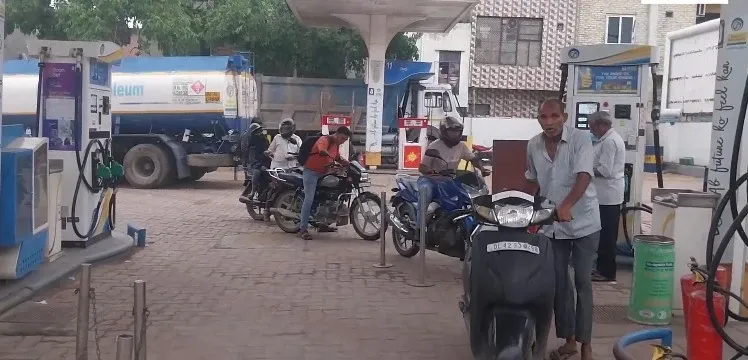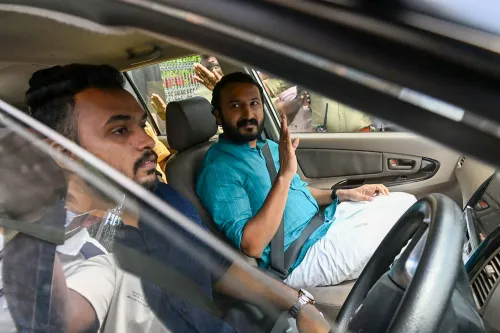Why is Delhi Seizing Vehicles Under the Fuel Ban?

Synopsis
Key Takeaways
- Strict fuel ban on 'end-of-life' vehicles.
- Two motorcycles seized already for non-compliance.
- Multi-agency approach for effective enforcement.
- ANPR technology aids in real-time vehicle identification.
- Owners can claim scrapping reimbursement directly.
New Delhi, July 1 (NationPress) In a significant effort to tackle air pollution, the Delhi government has instituted a stringent fuel ban targeting 'end-of-life' (EoL) vehicles. This includes petrol vehicles over 15 years old and diesel vehicles over 10 years old, prohibiting them from receiving fuel at petrol stations throughout the national capital.
Authorities have confirmed that two motorcycles have already been detected and confiscated under this new regulation, with plans for the vehicles to be dismantled as per the official guidelines.
This initiative follows alarming data from the Centre for Science and Environment (CSE), revealing that vehicles are responsible for 51 percent of pollution from local emission sources in Delhi, making them the largest contributor to the city's air quality issues.
The Transport Department has rolled out a multi-agency strategy, deploying personnel from the Delhi Police, Traffic Police, and the Municipal Corporation of Delhi (MCD) at key petrol stations, particularly those frequented by older vehicles.
Delhi Police have been stationed at petrol pumps numbered 1 to 100, while the Transport Department has assigned 59 specialized teams to stations numbered 101 to 159.
To oversee refueling activities, one traffic police officer is present at each of the 350 identified petrol stations, supplemented by two additional officers at every site to ensure order during this enforcement campaign.
To facilitate real-time monitoring, 498 fuel stations have been outfitted with Automatic Number Plate Recognition (ANPR) cameras.
These cameras work in tandem with the national VAHAN database to automatically spot overage vehicles and alert fuel station operators. Once flagged, the information is relayed to enforcement teams for swift action, including confiscation and scrapping of the vehicles.
Traffic Inspector Ashok Kumar stated, "In line with the Delhi government's directives and instructions from senior officials, EoL vehicles over 10 years old for diesel and over 15 years for petrol will be addressed. We have identified four petrol pumps in the Parliament Street area equipped with ANPR cameras and have stationed our transport and local police staff there."
"The ANPR cameras will identify the vehicle and trigger an alert. Our staff has been provided with e-Challan software. If any such vehicle is detected, the owner will be notified, and the vehicle will be seized according to protocol and turned over to the Risk-Based Supervisory Framework (RBSF)," he added.
He also mentioned, "From the data obtained from four petrol pumps so far, we have seized two motorcycles older than 15 years and have sent them to registered scrap dealers. Vehicle owners can directly claim reimbursement from the scrapping authority."
Petrol pump employees have also received briefings on the enforcement policy. One employee shared, "We have been instructed not to refuel vehicles older than 10 or 15 years. AI cameras at the pumps first identify the vehicles, and we then determine whether to provide fuel. If necessary, we check the vehicle's registration certificate and notify the authorities."
This thorough enforcement is part of the Delhi government's wider initiative to reduce vehicular emissions and enhance the city's air quality.









